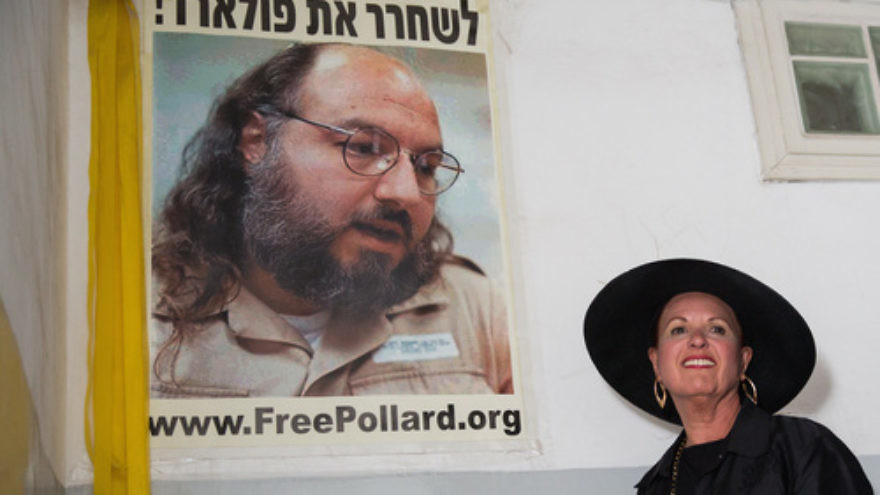Israeli Prime Minister Benjamin Netanyahu asked U.S. President Donald Trump this week to lift parole restrictions on the convicted Israeli spy Jonathan Pollard in order to allow him to relocate to Israel, Israel Hayom has learned.
Pollard was arrested in 1985. He eventually struck a plea bargain in which he pleaded guilty to spying for Israel while working as a U.S. Navy intelligence analyst.
He received Israeli citizenship while in prison in 1995.
Pollard, 62, was paroled in November 2015 after serving 30 years. He currently lives in New York City.
Under the strict conditions of his parole, he must remain in the United States for five years, wear an electronic bracelet, and submit to monitoring of his work computer and other devices he uses, despite not being exposed to classified material during his 30-year incarceration. He is also barred from speaking to the press.
Netanyahu raised the issue of Pollard’s parole terms when he met Trump some six months ago, but during this week’s Oval Office meeting, the Israeli premier asked that Pollard be allowed to move to Israel as a gesture marking the upcoming 70th anniversary of Israel’s founding this May.
Netanyahu said it was time the two countries put the affair behind them. The administration has yet to respond to this request.
An Israeli official told Israel Hayom that even if Pollard is allowed to move to Israel, this would be contingent on abiding by some of the same restrictions. The official said Israel has agreed to this requirement.
Netanyahu, who arrived in New York City on Wednesday for the final leg of his U.S. visit, said his meetings with Trump and other officials were successful.
“This is an important visit, and only in the future will we be able to tell how much it contributed to Israel’s security,” said Netanyahu. He added that he was “very satisfied” by his meetings, and said that “there were very intense talks about Iran, which was the main issue that we covered during the visit.”
Netanyahu is set to meet with U.S. Treasury Secretary Steven Mnuchin and U.S. Ambassador to the United Nations Nikki Haley on Thursday.
Netanyahu was hosted by he Economic Club of Washington on Wednesday. In a live interview with David M. Rubenstein, president of the Economic Club, Netanyahu said: “We used to say that if we make peace with the Palestinians, we’ll break out and normalize our relations with the Arab world. I think it actually may work more the other way around. We normalize our relations with the Arab world to help change the perception of the Palestinians.”
The Israeli leader went on to say that “most Israelis would favor a situation where we could separate from the Palestinians.”
He continued: “I don’t want the Palestinians as citizens of Israel, and I don’t want them as subjects of Israel. So I want a solution where they have all the powers they need to govern themselves, but none of the powers that would threaten us. What that means is that whatever the solution is, the area west of the Jordan that includes the Palestinian areas would be militarily under Israel. The overriding security and responsibility would be Israel’s.”
Netanyahu pointed to past territorial concessions, which have tended to threaten Israel’s security and which have not led to peace.
“In this area, the Middle East, full of failed states, states that collapsed, it’s very important that Israel be the power responsible for security because otherwise, everyone collapses. The Palestinians collapse,” he explained. “Every area that we left militarily, militant Islam came in. We left Lebanon, Iran came in with Hezbollah. We left Gaza, Iran came in with Hamas. We leave the West Bank militarily, or most of it as people stipulate in their various peace plans, you have either Hamas coming in—that’s Iran—or you have ISIS coming in.
“This is a catastrophe for peace,” he said.


























